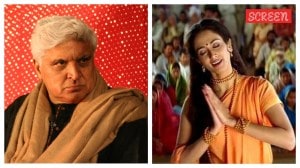Contemplative Cosmopolitan
The French government recently made the Hindi writer Nirmal Verma a Chevalier de l8217;ordre des arts et des lettres. This rare internation...

The French government recently made the Hindi writer Nirmal Verma a Chevalier de l8217;ordre des arts et des lettres. This rare international honour may serve to highlight for non-Hindi readers the significance of Nirmal Verma, who has long been acclaimed as the foremost novelist and short story writer in Hindi, and has already been awarded the Sahitya Akademi prize, the Jnanpith prize and the Padma Bhushan.
Nirmal Verma is the kind of writer who would be rare in any literature and is even rarer in Indian literature. He has his own utterly distinctive style, which strikes the Hindi reader as shockingly and deliciously new even now. It is not only highly sensitive, nuanced, tremulous and luminous, but it also adapts into Hindi many striking turns of phrase and syntax from English with natural ease. But what is more, he is a writer with a vision of his own, a world-view which embraces equally the lower middle-class life which is the staple of Hindi fiction, and a truly cosmopolitan sensibility such as few Indian writers possess, including those who write in English. He offers probably the profoundest blend of Indian tradition and Western modernity that any Indian writer has achieved, and in this regard, he stands with Bankim, Tagore and U.R. Ananthamurthy.
Nirmal Verma was born in 1929 in Shimla. His father was a high government official, and Nirmal went to a school which functioned for six months from Delhi and six months from Shimla, just as the British government did; he was truly a child of the Raj. He then went on to St Stephen8217;s College, where he became a card-holding member of the Communist Party; he resigned, as did so many conscientious others, in the watershed year of 1956. After teaching briefly in Delhi, he took up a scholarship to go to Czechoslovakia, where he stayed from 1959 up to the Russian invasion in 1968. Meanwhile, he translated into Hindi several Czech writers, including Milan Kundera when he was still unknown in English.
Nirmal Verma spent the next three years in England, where he observed at first hand that country in its seedy postcolonial decline and the beginnings of its still deeply problematic multiracial social composition. His short stories like A Night in London and essays such as In Search of the English are a sturdily unflinching reassessment of how Great Britain had shrunk into Little England. His deeply searching experience of Europe, both Eastern Communist and Western liberal, also informs his seminal essay India and Europe.
By the time Nirmal Verma returned to India in 1970 to live here permanently, he had already published his first Hindi novel, Ve Din 1964; literally Those Days and translated ably into English by fellow novelist Krishna Baldev Vaid under the title Days of Longing. It narrates the events of just a couple of days in Prague during which a German woman tourist and her Indian male guide grow fond enough of each other to go to bed. To complicate it further, this separated mother has her little son in tow and the hero is, shortly after the moment of consummation, tenderly reminded of his sister back home in India. Under the simple romantic veneer, this is as psychologically complex as it can get. This must be one of the few Indian-language novels set entirely in the West, such as none of our metropolitan Indian-English novelists has yet had the confidence to write.
|
|
|
Nirmal Verma
b. 1929 Jnanpith Award 1999 Padma Bhushan 2002 Elected Fellow of Sahitya Akademi 2005 Chevalier de l8217;ordre des arts et des lettres 2005 |
|
|
Nirmal Verma8217;s next novel Lal tin ki Chhat 1974; The Red Tin Roof was set in Shimla and delicately explored the world of growing children, both male and female. Ek Chithra Sukh 1979; A Rag Called Happiness was set partly in the other major locale of Nirmal Verma8217;s childhood, a Lutyens bungalow in New Delhi, where the various characters gather to rehearse a play by Strindberg while they play out off-stage equally emotionally charged lives of their own. Raat ka Reporter 1989; Dark Dispatches is a narrative of ominous, oppressive times as experienced by a man so apprehensive as to feel utterly bewildered; when I taught it in English translation at the University of Chicago some years ago, the students responded sensitively to the atmosphere without realizing that it was set during the Emergency. This artistic indirection is rather like that in Normal Mailer8217;s novel Why Are We in Vietnam? which offers a thoroughgoing critique of American machismo without once mentioning the word Vietnam.
Nirmal Verma8217;s latest novel Antim Aranya 2000; The Last Wilderness is about old people and their sense of what they have done with their lives and what remains. This was only his fifth novel in four decades of writing, but these novels are supplemented if not a little overshadowed by the eight collections of his short stories which explore again the quintessentially Indian themes of family relationships and the degrees of engagement or disengagement with this world. One of these, Maya Darpan, was made into a National Award-winning film by Kumar Shahani, while several others have been turned into stage plays and TV adaptations.
The many volumes of essays by Nirmal Verma display not only well informed intellection but deep contemplation and meditation, on subjects ranging from the Kumbh Mela to a steel plant. In what is a testimony to the wide appeal of his works, all his novels, most of his short stories and many of his essays are available in English translation, including his 13 short stories set in the West in the collection Indian Errant 2002, and a fuller and more representative selection from his work in An Inch and a Half above Ground 2004. There is no excuse even for our alienated Anglophiles not to read him, and to discover in the title of another translated volume by him a world elsewhere.
The writer is Professor of English at the University of Delhi. Email: trivedihvsnl.com
- 01
- 02
- 03
- 04
- 05































